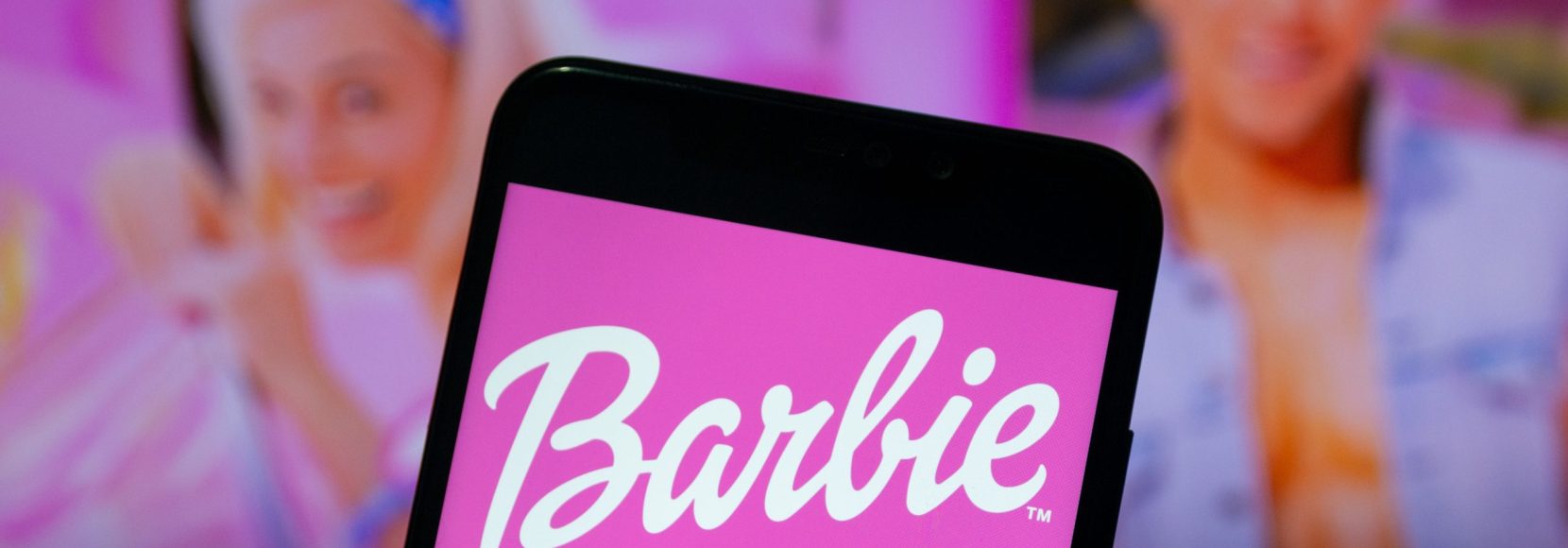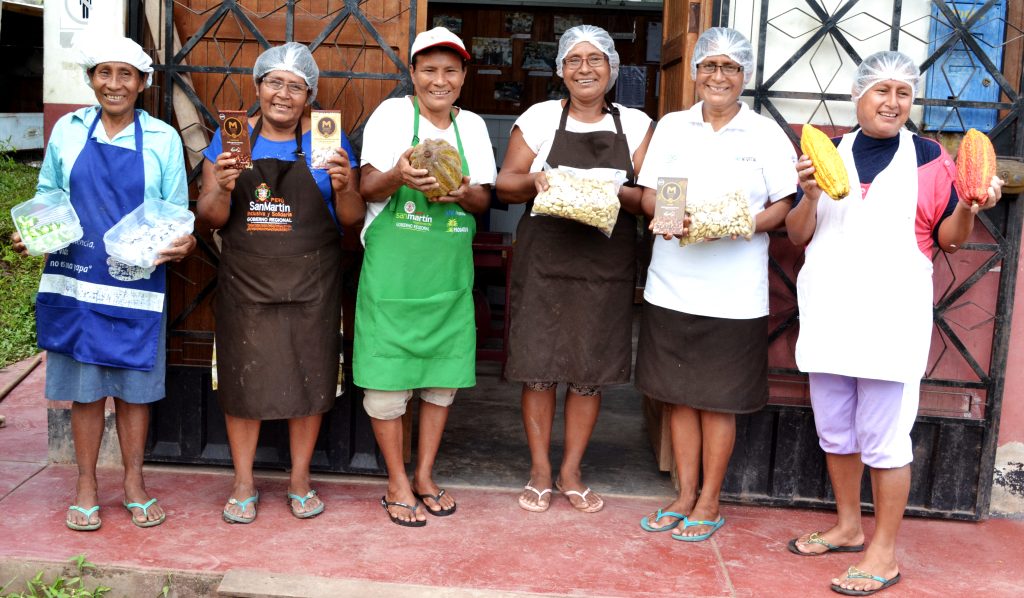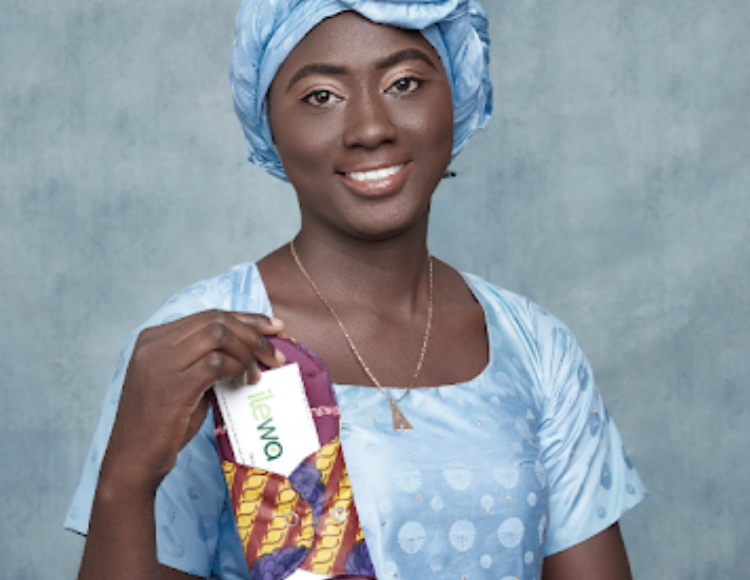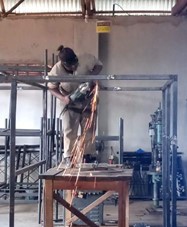
Is the Barbie Movie About Women and Men and Gender Equality?
What does a movie about Barbie, a doll often associated with objectifying women, have to say about gender equality and empowerment?
Like millions of other people around the world this past week, I went to see “Barbie”. When I first heard about it, I didn’t have much interest. But Mattel and Warner Brothers’ public relations engines won out. I became intrigued to see what a movie about Barbie, a doll that I had always associated with objectifying women, had to say about gender equality and empowerment.
First, a little preview (just like when we go to the movies.)
What is gender equality?
Gender Equality is defined as a state where individuals and groups can have the same opportunity, rights, and agency over their lives, absent from discrimination or bias on the basis of gender or sex. Gender equality equates to basic human rights.
Here at TechnoServe, we work hard to achieve gender parity in terms of the share of women and men who financially benefit from our programs around the world. This means programs that:
- Design activities that address the structural inequalities within households, businesses, and communities.
- Include activities that engage men and boys in taking actions to support gender equality.
- Develop gender learning agendas and disseminate learnings about our program impacts on women’s economic empowerment.
- Communicate the benefits of women’s economic empowerment to partners, including funders, business partners and communities with which we work.
At TechnoServe our mission is to fight poverty by helping people – all genders – build regenerative farms, businesses, and markets that increase incomes. And we know that for many of the women we work with around the world, they struggle to compete in economic systems shaped by patriarchal values. Given our mission and the state of many of the economic systems in the world, it is essential that we consider women’s empowerment, particularly women’s economic empowerment when thinking about gender equality.
What is women’s empowerment?
It refers to the expansion of people’s ability to make strategic life choices, particularly in contexts in which this ability had been denied to them. It involves:
- awareness-raising,
- building self-confidence,
- expansion of choices,
- increased access to and control over resources, and
- actions to transform the structures which reinforce and perpetuate discrimination and inequality.
So how does this all relate to the movie?
Women’s empowerment and Barbie

(I don’t want to ruin anything for those of you who haven’t seen it yet 🙂so pause here to avoid any spoilers.) The premise of the movie is that “Stereotypical Barbie” (played by Margot Robbie) and all the other Barbies live in Barbieland, “a matriarchal society where all women are self-confident, self-sufficient, and successful. While their Ken counterparts spend their days engaging in recreational activities at the beach,” the Barbies hold job positions such as doctors, lawyers, and politicians. Beach Ken (“Ken”) spends his days trying to get Barbie’s attention, attempting to build a closer relationship, but she prefers her independence and hanging out with the other Barbies.
The Barbies believe that they have made the real world a better place by empowering women and girls to feel good about themselves and the self-assurance that they can do anything. Without giving the whole movie away, Stereotypical Barbie has an existential crisis, which leads Barbie and Ken (played by Ryan Gosling) to travel to the real world. On their journey, they discover that in fact, most women they encounter in the real world are not empowered. Men seem to hold most of the power, economic and otherwise.
Why are we still talking about gender equality in 2023?
It’s hard to believe that in 2023 we are all still grappling with gender inequality. I couldn’t help but think about the many women TechnoServe works with around the world. They have so much potential yet struggle to compete in economic systems shaped by patriarchal values. In spite of what we know about the difference that women’s economic empowerment can make for individuals, their families, and communities, there is still much work to be done to ensure that all women have the skills, confidence, and connections to achieve their full potential.

When Ken discovers the patriarchal system that enables men like him to run things in the real world, he rushes back to Barbieland to change the system. By the time Barbie gets back, it appears she may be too late – Ken has managed to brainwash most of the other Barbies and the Kens have begun to take over, including turning all the Barbies’ dreamhouses into their “mojo dojo casa houses”.
Just when Stereotypical Barbie is ready to give up, Gloria (played by America Ferrara), an executive assistant to the CEO at Mattel delivers this impassioned speech:
“It is literally impossible to be a woman. You are so beautiful and so smart, and it kills me that you don’t think you’re good enough. Like, we have to always be extraordinary, but somehow we’re always doing it wrong.
You have to be thin, but not too thin. And you can never say you want to be thin. You have to say you want to be healthy, but also you have to be thin. You have to have money, but you can’t ask for money because that’s crass. You have to be a boss, but you can’t be mean. You have to lead, but you can’t squash other people’s ideas. You’re supposed to love being a mother but don’t talk about your kids all the damn time. You have to be a career woman, but also always be looking out for other people. You have to answer for men’s bad behavior, which is insane, but if you point that out, you’re accused of complaining.
You’re supposed to stay pretty for men, but not so pretty that you tempt them too much or that you threaten other women because you’re supposed to be a part of the sisterhood. But always stand out and always be grateful. But never forget that the system is rigged. So find a way to acknowledge that but also always be grateful. You have to never get old, never be rude, never show off, never be selfish, never fall down, never fail, never show fear, never get out of line. It’s too hard! It’s too contradictory and nobody gives you a medal or says thank you! And it turns out in fact that not only are you doing everything wrong, but also everything is your fault.
I’m just so tired of watching myself and every single other woman tie herself into knots so that people will like us. And if all of that is also true for a doll just representing women, then I don’t even know.”
– America Ferrera as Gloria in ‘Barbie’
Gloria’s speech inspires Stereotypical Barbie to save Barbieland and restore the other Barbies back to their old selves. Once they have reclaimed their power, they establish a new order, expanding opportunities for Kens to take on new identities and roles that are independent of the Barbies, creating a more equitable society for everyone.
And once Stereotypical Barbie has helped to make Barbieland a better place for everyone, she realizes that she knows too much to stay in Barbieland. She chooses to be human and go back to the real world to try to make a difference.

The impact of gender equality
The movie resonated with me on many levels, including the strong desire to make a difference, fight inequality, and help build strong communities. This is what many of you, TechnoServe supporters and donors, feel.
Unfortunately, unlike Barbieland, the real world is more complex. TechnoServe designs programs that recognize the complexity and interconnected nature of the real world. Once the women we work with around the world have a chance to join a TechnoServe program, they start to gain more awareness of their rights and to question the gender norms that have shaped their opportunities. Recognition is the first step to the barriers they still face at the household, community, and system levels.
At TechnoServe, through our Women’s Economic Empowerment approach, we also engage men and help create the environment women need to succeed economically and benefit others in their communities.
I’m talking about women like Severina Paul Mwakateba, the founder of AA Nafaka in Tanzania, a small food business that makes a difference by providing access to nutritious food in her community while also providing distribution opportunities for the smallholder farmers with whom the business partners.

I’m also thinking about Danielle Adétola Adanlawo, who started a business making sustainable diapers and menstrual products after the birth of her child when she realized “the cost of disposable diapers was huge, not to mention the [environmental concerns] after use.”

Or Ruth Nabatanzi, a young Ugandan woman who broke gender stereotypes by launching a career as a welder. “I pay half the rent at home, I buy food, and also send some money to my father in the village,” Ruth says. “So life has really changed for the better. We don’t have to miss meals anymore because we can’t afford them.” She’s even saving money to start a workshop where she will be able to employ other women.

Promoting gender equality
Thank you for reading this blog post and believing that everyone deserves the opportunity to build a better life. That’s the first step in supporting the people around the world who participate in TechnoServe programs to build brighter futures for themselves and their families.
What would it look like to take the next step to promote gender equality?
- Use this blog to start a conversation with your community on creating gender equality – tag us @TechnoServe!
- Support women-owned businesses in your community.
- Donate to TechnoServe to support the farmers and small business owners around the world who are working to eliminate the economic gender gap and end poverty for millions globally.





